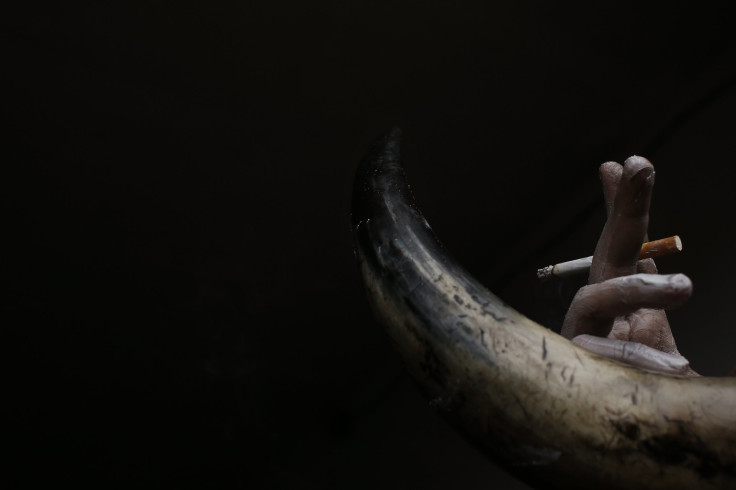Stroke Victims Offer Clue To Brain Region Responsible For Addiction

New studies have identified a region of the brain that could hold the key to treating addiction. Scientists came to the conclusion after they found that smokers who suffered a stroke in the region of the brain known as the insular cortex, were far more likely to successfully quit smoking, and suffered far less severe withdrawal symptoms.
"These findings indicate that the insular cortex may play a central role in addiction," Amir Abdolahi, a scientist at Philips Research North America and lead author of the two studies, said in a press release. "When this part of the brain is damaged during stroke, smokers are about twice as likely to stop smoking and their craving and withdrawal symptoms are far less severe."
Current methods of treating nicotine addiction, which include drugs like bupropion and varenicline, primarily interfere with the brain’s dopamine-releasing mechanism in response to nicotine. While the drugs’ side effects are generally manageable, they also have relatively high rates of relapse, with up to 70 percent of those who undergo these treatments smoking again. Other treatment methods that focus on replacement, like nicotine patches or lozenges, also have high relapse rates.
However, the authors of the new studies, which appeared in the journals Addiction, and Addictive Behaviors, looked at stroke victims whose insular cortex had been affected in order to determine whether it had an effect on their addiction.
Smoking is itself a risk factor for stroke, and the researchers looked at two separate indicators -- whether patients resume smoking after a stroke and the reported severity of their cravings while hospitalized.
The studies looked at 156 stroke patients admitted to hospitals in Rochester, New York, all of whom identified as active smokers. They were divided into those who had suffered a stroke in their insular cortex and those who had suffered a stroke elsewhere in their brain.
The studies used two separate survey tools to determine different aspects of withdrawal, including anger, anxiety, concentration, hunger, sadness and sleep. What they found is that patients who had a stroke in their insular cortex suffered these effects far less severely.
The other study tracked the participants for three months afterwards in order to determine whether they had relapsed into smoking. Again, they found a major disparity between those who suffered a stroke in their insular cortex and those who suffered one elsewhere.
The findings open the door for researchers to explore new stroke therapies that target this area of the brain in particular, possibly disrupting its role in addiction through new drugs or other methods like deep brain stimulation. They also said the insular cortex was likely linked to other kinds of addiction as well.
"Much more research is needed in order for us to more fully understand the underlying mechanism and specific role of the insular cortex, but is clear that something is going on in this part of the brain that is influencing addiction," Abdolahi said.
© Copyright IBTimes 2024. All rights reserved.





















